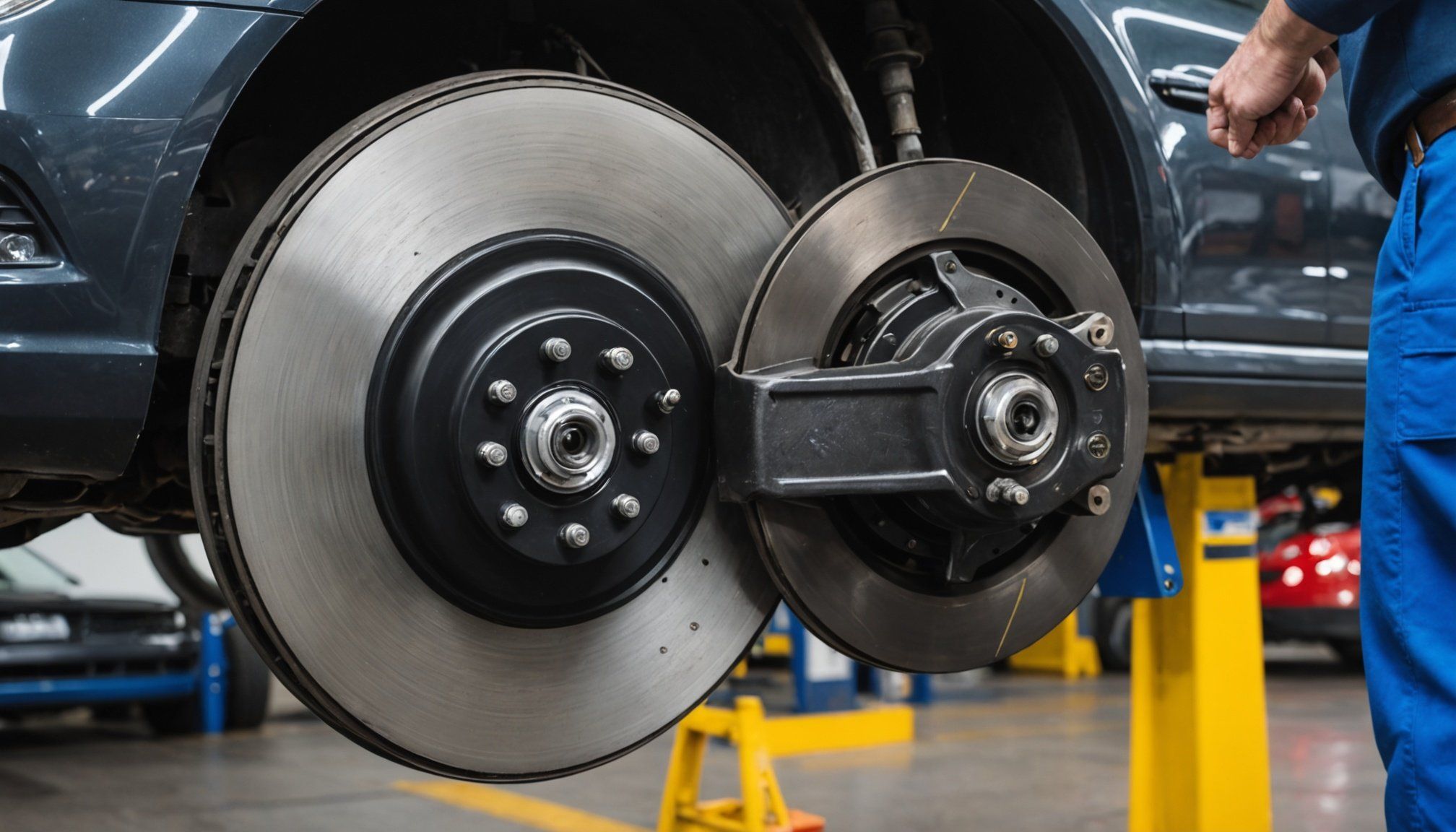Brakes are one of the most critical components of your car’s safety system. When you press the pedal, you expect your vehicle to slow down or stop efficiently. However, if you notice any signs of brake failure, it’s essential to address them immediately. This article will guide you through the necessary steps to take if you suspect your car’s brakes are failing, covering everything from identifying symptoms to knowing when to seek a professional repair.
Understanding Brake Failure Signs
Recognizing the early signs of brake failure is crucial for your safety. When you operate your vehicle, pay attention to any unusual sensations or noises when applying the brakes. Here are some common indicators:
Additional reading : How can understanding your vehicle’s warranty help you make better service choices?
-
Squealing or Grinding Noises: If you hear a high-pitched squeal or grinding sound when braking, it may indicate that your brake pads are worn and need immediate attention.
-
Vibrations: Feeling vibrations in the pedal when you press it can suggest that your brake rotors are warped or unevenly worn.
Also read : What are the pros and cons of owning a hybrid vehicle in the UK?
-
Soft or Spongy Pedal: If your brake pedal feels soft or goes down further than usual when pressed, it could mean there is air in the brake fluid or a leak in the system.
-
Warning Lights: Many modern vehicles are equipped with warning lights on the dashboard that alert you to brake issues. If you see a light indicating brake system problems, don’t ignore it.
-
Pulling to One Side: If your car pulls to one side when braking, this may indicate an issue with the brake system on one of the wheels, potentially requiring immediate repair.
If you encounter any of these signs, do not take them lightly. Understanding these symptoms will help you take appropriate action and avoid potential accidents.
What You Should Do Immediately
If you suspect your brakes are failing, your first course of action should be to ensure your immediate safety and that of others on the road. Here are the steps you should take:
-
Find a Safe Place to Pull Over: As soon as you feel your brakes are not functioning correctly, reduce your speed and look for a safe area to pull over. Avoid sudden stops in the middle of traffic.
-
Inspect the Brake Fluid: Once your vehicle is safely parked, check the brake fluid level in the reservoir. If it’s low, this may be a sign of a leak. Fluid leaks can quickly lead to brake failure, so it’s crucial to address this issue promptly.
-
Listen for Unusual Noises: As you inspect your vehicle, listen for any ongoing unusual sounds coming from the brakes. This could help pinpoint the problem.
-
Look for Visible Damage: Check the brake pads and rotors if you feel comfortable doing so. Look for any signs of wear or damage. If you notice any, it’s time to seek professional assistance.
-
Avoid Driving the Vehicle: If you suspect serious brake issues, do not attempt to drive your vehicle further. Instead, contact a tow service or a mechanic to transport your car safely to a repair shop.
By following these initial steps, you can prevent worsening the problem and ensure that your vehicle is safe to operate. Remember that addressing brake issues promptly can save you from more significant repair costs down the line.
The Importance of Regular Brake Maintenance
To prevent brake failure, regular maintenance is essential. Keeping your braking system in top condition will not only enhance your safety, but it will also extend the lifespan of your vehicle. Here are important maintenance tips:
-
Scheduled Inspections: Regularly schedule brake inspections as part of your routine vehicle maintenance. Mechanics can help identify potential issues before they turn into costly repairs.
-
Check Brake Pads and Rotors: Brake pads should be replaced at regular intervals, usually every 30,000 to 70,000 miles, depending on your driving habits. Having them checked during each oil change is a good practice.
-
Monitor Brake Fluid Levels: Keep an eye on your brake fluid levels. If you notice that your brake fluid is continuously low, it could signify a leak somewhere in the system.
-
Replace Brake Fluid: Brake fluid should be replaced every two years or as recommended by your vehicle’s manufacturer. Over time, fluid can absorb moisture, which can reduce braking efficiency.
-
Pay Attention to Driving Habits: Lastly, your driving style impacts brake wear. Avoid hard braking and accelerate smoothly to prolong the life of your brakes.
By making brake maintenance a habit, you will reduce the risk of failure and ensure your vehicle remains safe and operational. Regular checks and mindful driving can make a significant difference.
When to Seek Professional Help
While some brake issues can be diagnosed and resolved at home, there are times when you should seek professional assistance. Here’s when to call a mechanic:
-
Persistent Symptoms: If the symptoms of brake failure persist after you’ve inspected your vehicle, it’s critical to have a professional check it out. Sometimes, issues are hidden and require expert diagnostics.
-
Complex Repairs Needed: If you suspect that your brake system requires complex repairs such as replacing the master cylinder or calipers, it’s best left to a professional. These components are vital for safe braking and should be handled by experienced technicians.
-
Unusual Fluid Leaks: If you notice any fluid leaking from your vehicle, especially if it’s a dark or reddish color, you should visit a mechanic immediately. This could indicate a serious issue in your brake system.
-
Warning Lights: If the brake warning light on your dashboard illuminates, don’t ignore it. This light is designed to indicate that there’s a problem that requires professional attention.
-
Feeling Unsafe: Above all, trust your instincts. If you ever feel unsafe while driving due to brake issues, it’s crucial to stop driving and seek help. Your safety should always come first.
When in doubt, it’s best to err on the side of caution. Seeking professional help ensures that your car is safe for you and others on the road.
In conclusion, being proactive about your car’s braking system is essential for safety. By recognizing the signs of potential brake failure, knowing what immediate actions to take, and committing to regular maintenance, you can keep your vehicle in good working order. Always trust your instincts and do not hesitate to seek professional help if you feel something is off. Remember, your brakes are your first line of defense against accidents. Keep them in check, and you’ll drive with confidence.











